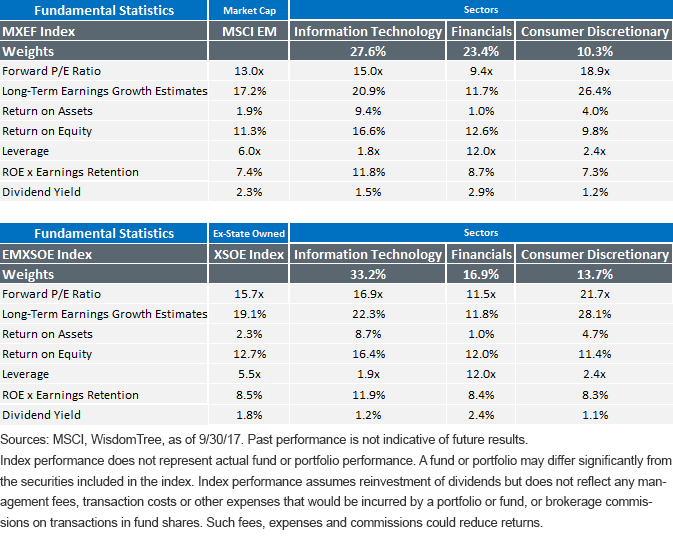Does Government Ownership Make a Company a Better Investment?


As we’ve highlighted in recent weeks, flows to emerging markets have accelerated dramatically in 2017. While the largest recipients of those flows have been in market capitalization-weighted strategies, we believe investors may be overlooking a meaningful risk: the role EM government ownership can have on future returns.
Ignoring Risk vs. Managing Risk
When investors allocate outside of developed markets, they inherently accept a fresh set of rules, business conventions and risks. In exchange, they believe their investments will compound at a higher rate of return than similar businesses in the developed world. In our view, the key risk that many overlook when they invest in EM is that a share of equity confers the same rights as their home country. In theory, the board works for shareholders to maximize value. Unfortunately, this is largely an American construct, and making that assumption in other markets could prove costly. Among megacap companies in emerging markets—so-called national champions—the government retains significant control over not only corporate strategy and decisions, but shareholder rights as well. In our view, being ignorant to this risk is not the same thing as managing it.
Corporate Governance and Oversight
We’ve written recently about the potentially troubling issues facyeing Chinese companies and the formalization of the role of government in their management. The key issue boils down to who the company answer to: the shareholders or government stakeholders. In our view, companies with meaningful government ownership (>20%) are often run as much for government benefit as for their shareholders. Problems arise for investors when these interests are not aligned.

For definitions of terms in the chart, visit our glossary.
In the table above, we contrast the fundamentals of the MSCI Emerging Markets Index with the WisdomTree Emerging Markets ex-State-Owned Enterprises (ex-SOE) Index, along with each Index’s top three sectors. Based solely on forward P/E ratios, ex-SOEs currently trade at a modest premium to market cap. This makes sense given that long-term earnings growth expectations are also higher for less encumbered firms. To access these future higher returns, firms must trade at a slight premium. Put another way, SOEs should trade at a discount based on the risk of government intervention. In our view, this discount is perhaps too low for the risks present in the market, leading to potential excess returns for SOEs. Despite these modest differences, other fundamentals appear broadly in line. The key exception to this appears in the consumer discretionary sector.
Fundamental Focus
Ex-SOEs’ return-on-equity (ROE) in this sector is demonstrably stronger than the market. We believe this is largely the result of increased exposure to companies that more effectively and efficiently leverage technology, such as JD.com in retail and Ctrip.com in travel. To be fair, these companies are also included in the MSCI EM Index, but their weights are diminished compared to a more selective index methodology. As a result, investors were able to capture more attractive quality metrics per dollar invested. Additionally, they need not be overly concerned that company profits will be used to plug governmental budget gaps or be subject to shifts in political priorities.
While government ownership can be essential in the early stages of a company’s development, our view is that businesses that do reach scale can be most efficiently run for the benefit of shareholders, not the government. While there may be certain instances where government ownership can also benefit shareholders, we believe this remains a significantly underappreciated risk for investors with exposure to emerging markets.
1For daily holdings of the WisdomTree Emerging Markets ex-State-Owned Enterprises Index, visit our website.
Important Risks Related to this Article
Investments in emerging, offshore or frontier markets are generally less liquid and less efficient than investments in developed markets and are subject to additional risks, such as risks of adverse governmental regulation and intervention or political developments.


